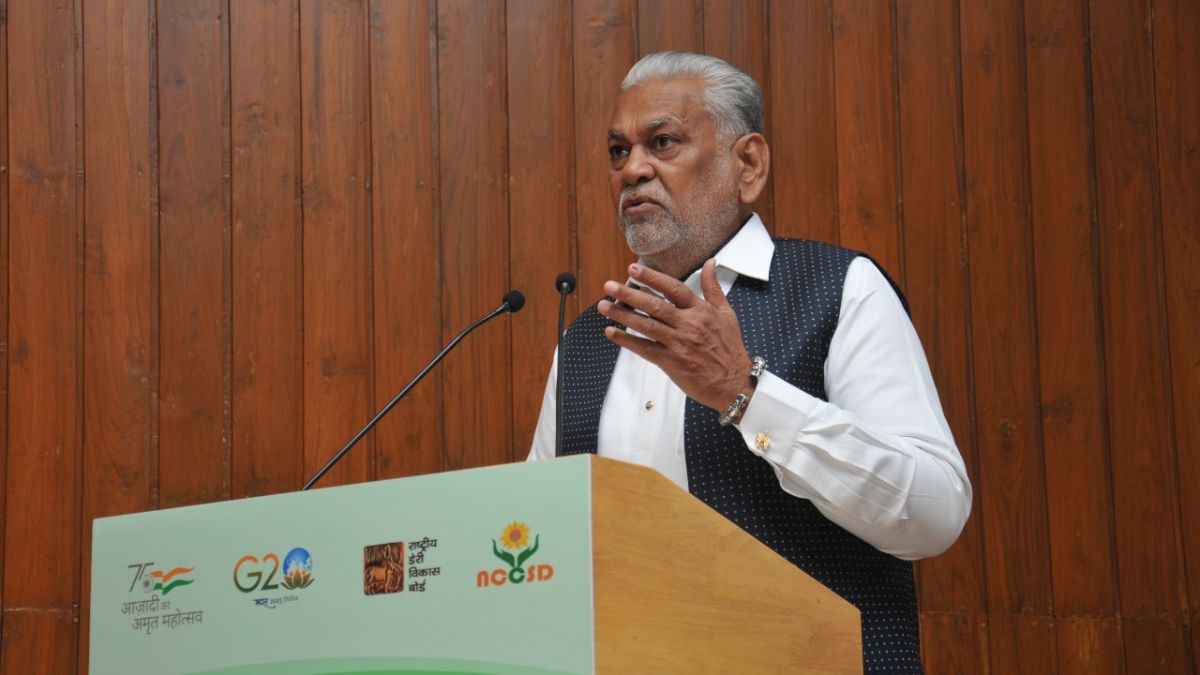Hon’ble Union FAHD Minister inaugurates Seminar on Mitigating adverse impacts of climate change on Animal Husbandry & Dairying
Hon'ble Minister also released Bi-annual reports of NDDB-supported Mujkuva Solar Pump Irrigators Cooperative (MSPICE), India's first grid connected enterprise & Zakariyapura Sakhi Khad Sahkari Mandali, women manure management cooperative

Advertisement
Anand (Gujarat) : Shri Parshottam Rupala, Hon’ble Union Minister of Fisheries, Animal Husbandry & Dairying, Government of India inaugurated a seminar on “Mitigating the adverse impacts of climate change on Animal Husbandry & Dairying” jointly organised by NDDB and National Council for Climate Change, Sustainable Development and Public Leadership (NCCSD) at NDDB, Anand.

Shri Meenesh Shah, Chairman NDDB, Dr Kirit Shelat, Executive Chairman, NCCSD, Dr AK Shrivastava, Vice Chancellor, DUVASU, Mathura and Shri Jayen Mehta, Managing Director, GCMMF Ltd addressed the seminar. Experts, scientists, academicians and farmers participated in the deliberations.
During the seminar, the Hon’ble Minister also released Bi-annual reports of NDDB-supported Mujkuva Solar Pump Irrigators Cooperative (MSPICE), India’s first grid connected enterprise & Zakariyapura Sakhi Khad Sahkari Mandali, women manure management cooperative.

Addressing the seminar, Shri Rupala said that to reduce Green House Gases’ (GHG) emission in the dairy sector, policies and programmes emphasizing appropriate animal breed selection along with balancing of ration and other such steps to improve the productivity of animals are the need of the hour. He said that there is a need to explore ways to reduce the adverse impact of extreme temperature on milk production.
In his address, Chairman, NDDB said the Dairy Board is committed to mitigate impacts of climate change and promote climate smart dairying. NDDB’s manure value chain is using dung as a source for biogas used as cooking fuel and slurry-based organic fertiliser to reduce methane emissions and also to provide additional income to farmers. NDDB has also been promoting adoption of solar energy at various levels of the dairy value chain to reduce use of non-renewable sources of energy.
Shri Shah further said combination of traditional knowledge and scientific techniques can make India’s dairy sector more resilient to the challenges posed by climate change. He hoped deliberations in the seminar will help prepare a road map for the future.
On the occasion, Dr Shelat said global warming is an international phenomenon. This warming trend has been going on for a long time; its pace has significantly increased. The adverse effect of rising temperatures has led to a reduction in animal productivity and spread of new diseases.
During his presentation, Dr Shrivastava said that dairy animals are both victim and cause for GHG emission and emphasized on proper feeding and animal management to prevent impact on the environment.
The seminar offered significant insights from renowned experts for mitigating the impact of climate change on the dairy sector and thereby continue to provide livelihoods to millions of small and marginal farmers in a sustainable way.
Technical sessions focused on areas like – Possible impact of climate change on livestock in tropics & ways to mitigate, role of Indigenous breeds in climate change scenario, strategies for mitigating climate change through nutritional interventions.
Advertisement

